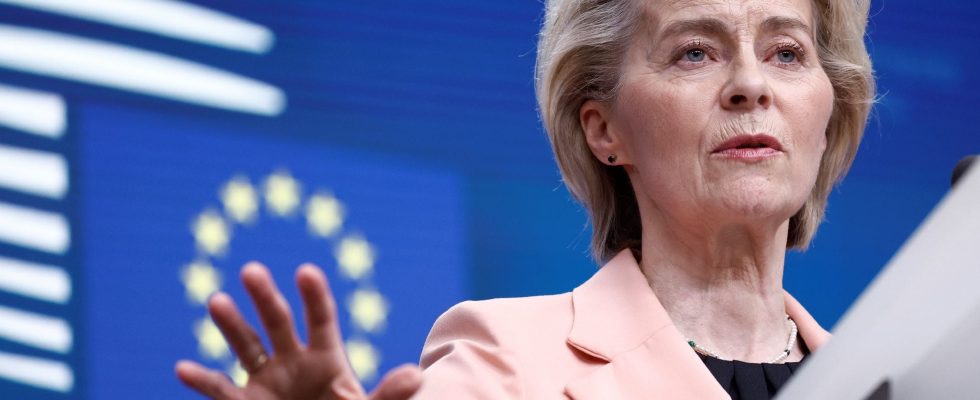In his report on the single market presented on Wednesday April 17 to European leaders, the former Italian Prime Minister calls for a considerable strengthening of the “Interconnection Mechanism”. He also calls for the creation of an “agency for the supply of clean energy”. This new entity would oversee incentive systems for large-scale deployment of clean technologies. It would also serve as a one-stop shop for businesses. Measures which go in the right direction but which do not compensate for the absence of a European-style “Inflation Reduction Act”, believes Thomas Pellerin-Carlin, candidate for the next European elections on the Place Publique and Socialist Party list, scope by Raphaël Glucksmann.
L’Express: The Letta report places great emphasis on cooperation. In other words, to ensure a better future, European countries must put aside their dissensions, particularly in the field of energy. Isn’t this breaking down an open door?
Thomas Pellerin-Carlin: On the contrary. The report is a timely reminder that the national interest also involves, at least in terms of energy, greater European integration. It’s not about ideology. Numerous technical and economic arguments argue in this direction. For example, if you only have 10% wind and solar in your electricity mix, it is relatively easy to manage the variability of their production. On the other hand, the higher this share rises, the more acutely questions of variability arise. An interconnection with neighboring countries becomes crucial, in order to ensure a sufficient supply of electricity. In summary, the more renewable energy we have in the electricity mix, the more it is in our interest to cooperate and interconnect.
Another illuminating example is the supply of critical resources. In the 1960s when there was a pro-nuclear consensus in Europe, it was quite obvious that we also needed to cooperate at the upstream level of the value chain. This is why, for example, the Euratom supply agency authorizes and concludes contracts for the purchase of enriched uranium. I am surprised to see that for other strategic materials such as lithium, we have not yet implemented a similar process. The Letta report is therefore right to highlight this subject by mentioning group purchases at European level.
Despite its proposals, the report also clearly says that we do not have the means to compete with the American Inflation Reduction Act (IRA), at least in the short term. All we can do is streamline and optimize our current policies. Isn’t that an admission of failure?
Absolutely. What Enrico Letta cannot say frankly is that the European Union – no doubt through political cowardice on the part of certain leaders – has chosen not to respond seriously to the IRA. How else can we understand the lack of response from the old continent when twenty months have passed since the implementation of this plan in the United States? The call for more cooperation between European countries must therefore be seen as what economists call a second-order equilibrium. This would still improve the current situation, but it is not satisfactory.
The real response to the IRA is to deploy a European investment plan for the climate and clean technologies – the famous “cleantech”. There is no need to imagine complicated measures. Of course, it is impossible to do exactly like the IRA, with continent-wide tax credits since we do not yet have a European corporate tax. But we can innovate and use other tools, adapted to our European model.
Is Europe doomed to lose ground on China and the United States?
The future will depend on the result of the European elections on June 9. These can confirm ecological regression, the status quo, or on the contrary create a new dynamic. The European hydrogen bank, which has a budget of 800 million euros, shows that we can put interesting things in place. But we have to go longer and change scale. Talk in billions, not millions. We could go further by establishing a tax on financial transactions – an idea supported by Nicolas Sarkozy and Angela Merkel in 2011 but which Emmanuel Macron opposes today, a system of automatic deduction from super profits or even a European tax on the fortune that Aurore Lalucq carries. The resources drawn from these mechanisms would make it possible to raise money on the markets and give Europe the financial means to respond to the American IRA. We cannot afford to wait any longer. The train of the green technology revolution is in motion. China has already been in it for a long time. The United States joined them in 2022 with the IRA. This June 9, with Raphaël Glucksmann, we want to give Europeans the opportunity to vote for a Europe which becomes an ecological power, which invests to meet the challenges, a Europe which becomes leader of an energy, ecological and industrial revolution.
.
